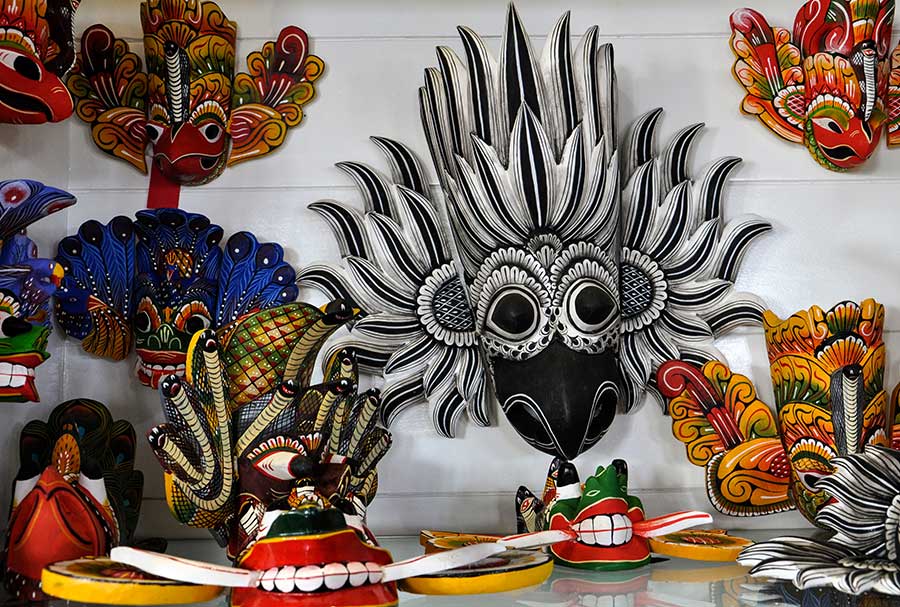Exploring the Rich Tradition of Sri Lankan Masks
In the heart of Sri Lanka's vibrant cultural landscape lies a tradition as colorful as it is ancient: the art of mask-making. These masks, with their intricate designs and deep symbolism, have played a central role in Sri Lankan culture for centuries.
A Tradition Rooted in History
The tradition of mask-making in Sri Lanka has its roots in ancient rituals and performances. Masks have been used in various cultural ceremonies, folk dramas, and religious practices throughout the island's history.
Craftsmanship and Artistry
Crafted with skill and precision, Sri Lankan masks are typically made from materials like wood, clay, or cloth. Each mask is a unique work of art, with intricate designs that reflect the diverse cultural influences found across the island.
Symbolism and Meaning
Masks in Sri Lanka hold deep symbolic meaning, representing characters from folklore, mythology, and religious epics. For example, the 'Sanni Yakuma' masks are believed to ward off evil spirits, while the 'Kolam' masks are associated with traditional healing rituals.
Preserving a Cultural Legacy
Despite facing challenges from modernization, efforts are underway to preserve the tradition of mask-making. Local artisans, cultural organizations, and government initiatives are working to revive this rich cultural heritage through workshops, exhibitions, and cultural events.
Embracing Diversity
Sri Lankan masks celebrate the island's cultural diversity. From colorful devil masks to intricate kolam designs, each mask tells a story of the influences that have shaped Sri Lankan culture over the centuries.
Conclusion
In conclusion, the tradition of mask-making in Sri Lanka is a testament to the island's rich cultural heritage. As we strive to preserve this tradition for future generations, let us continue to celebrate the artistry and symbolism of these beautiful masks, which are a window into the soul of Sri Lankan culture.






